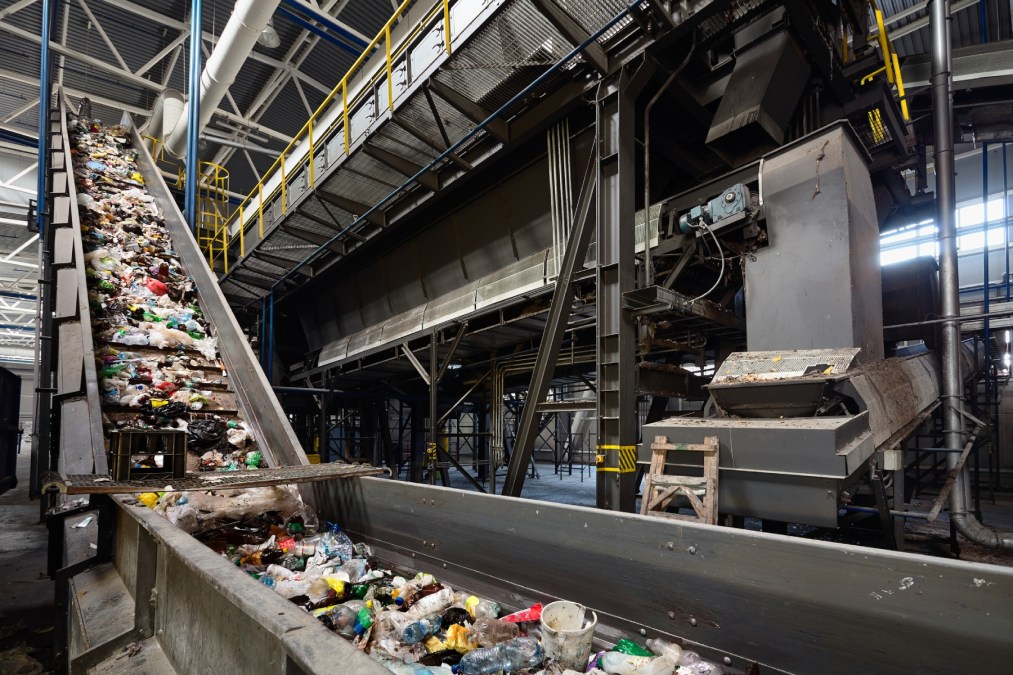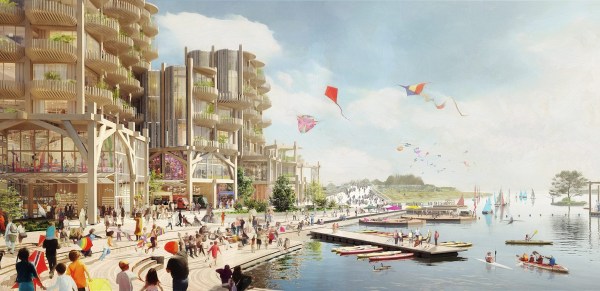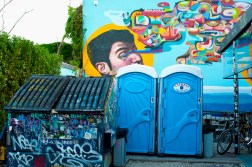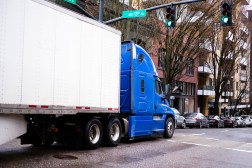Sidewalk Labs pilots AI-powered recycling system

A recycling pilot that uses artificial intelligence-powered imaging will test waste management technologies that could soon be used in Quayside, the 12-acre sensor-laden neighborhood that Google-sibling Sidewalk Labs is developing in Toronto.
In its “Clean Recycling Pilot,” Sidewalk Labs, the urban-planning subsidiary of Google parent company Alphabet, will explore whether regular feedback on recycling practices can improve them over time, especially in Toronto’s mixed-use and residential apartment buildings. Multi-unit residences in Toronto recycle less than 30 percent of their waste, compared to 70 percent for single-family homes, according to Sidewalk Labs.
The three-month test will be conducted at a 250-unit apartment building in downtown Toronto, using a low-tech version of a waste management system that Sidewalk Labs plans to include in Quayside once the company is approved to begin implementing technology in the neighborhood.
“We have a hypothesis: if you provide people with easy-to-understand information about their waste sorting behavior, then they’ll improve their recycling game,” states a press release from Sidewalk Labs on Tuesday.
The pilot will be split into two parts, according to Emily Kildow, Sidewalk’s associate director of sustainability. The low-tech portion of the pilot, which is what tenants will be exposed to, will involve employees at a waste-management center hand-sorting the recycling of the building as it’s processed. Everything piece of waste will be recorded and categorized according to type and weight, and the data will be reviewed, anonymized and sent back to tenants in the form of a biweekly newsletter that also offers tips on how to improve recycling practices.
For example, if the hand-sorted data shows that the building is recycling a significant amount of coffee cups that can’t be recycled, that information will be reflected in the next newsletter. It’s similar to a public awareness campaign, Kildow said.
“If you’re throwing away 10 pounds of recycling and only 7 pounds are actually able to be recycled, you’re missing 30 percent,” Kildow told StateScoop. “What’s in that 30 percent?”
In a second portion of the pilot only for Sidewalk Labs, a robotic camera will be installed at the waste management center alongside the employees hand-sorting the building’s recyclables. Using artificial intelligence, the camera will categorize each object according material, as it labels mixed paper, cardboard and different types of plastic in a spreadsheet. The computer-generated data won’t be used for any newsletters or shown to tenants, Kildow said, but if it’s as accurate as the hand-sorted data, it could be used widely when the Quayside development is built.
“The idea being, eventually, if we could get a camera on a conveyor belt that gives you information and ongoing feedback, that this would be a useful data stream for people to improve their behavior,” Kildow said.
Sidewalk Labs is currently waiting for approval of a sprawling master plan it published last year from Waterfront Toronto, the governmental authority in charge of revitalizing Quayside. Waterfront Toronto is expected to finish its review by March 31.






